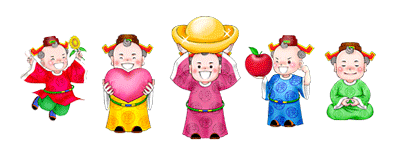Natural Rights Based on the People and the Rule of Law
Dr. Hong, Tao-Tze 2010-02-12

International Human Rights Day:
Natural Rights Based on the People and the Rule of Law
Dr. Hong, Tao-Tze
Zhang-men-ren of Tai Ji Men
President of Federation of World Peace and Love
Honorary Vice-President of Association of World Citizens UN/NGO/DPI/ECOSOC
President of Association of World Citizens, Taiwan
Natural Rights Based on the People and the Rule of Law
Dr. Hong, Tao-Tze
Zhang-men-ren of Tai Ji Men
President of Federation of World Peace and Love
Honorary Vice-President of Association of World Citizens UN/NGO/DPI/ECOSOC
President of Association of World Citizens, Taiwan
Human rights are a universal fundamental value of humanity. That is, what we do to protect the least fortunate in society is a reflection of our own humanity. Additionally, those who would empower themselves by denying rights and protections to others would deny them to all that they are capable of and hence we protect our own rights by protecting the rights of others. The world of the 21st century has awoken to the wisdom of defining and protecting human rights. At this critical moment of history, I would like to call attention to the necessity for the God-given human rights based upon the needs of people and ruled by law to prevail in the world. In May 2009 President Ma of the Republic of China signed the International Covenant on Civil and Political Rights (ICCPR) and the International Covenant on Economic, Social and Cultural Rights (ICESCR), which have been adopted and enacted by the Taiwanese legislature and became domestic laws on December 10, 2009. The ICCPR and the ICESCR along with the Universal Declaration of Human Rights (UDHR) form the International Bill of Human Rights. The adoption of the ICCPR and the ICESCR marks a milestone in the progress of cultural advancement of developed nations and demonstrates special importance for Taiwan as it enters the second century of its history.
A society of fairness and justice is a place where people can live and prosper. The division and balance of power anchors social order, promotes national security, prevents the abuse of administrative power and restricts the passage of inappropriate bills so as to uphold civilian’s rights. The basic human rights to life, work, property, freedom of speech and religion, and the freedom to move are clearly defined in the constitution of Taiwan. Everyone living in Taiwan should enjoy the same protections under the constitution.
Taxation without respect to human rights is a source of civilian pain
The Administrative Enforcement Agency recently revealed appalling statistics. As of October 2009, the outstanding number of overdue administrative enforcement cases on taxes and duties is close to 4.2 million cases with total value of NT$ 440 billion. With 7,785,035 households registered in Taiwan, the 4.2 million cases mean that more than half of Taiwanese households have overdue taxes and duties and are subject to administrative enforcement by the government. The number speaks for itself with only two possibilities; either social order in Taiwan has broken down to the degree that over half of the population habitually participate in tax evasion, or there has been a serious breakdown in the quality of tax assessment and collection, either case requires substantial redress. If the tax authority is the source of the problem and the Administrative Enforcement Agency follows the instructions of the tax authority, the problem is compounded and is a waste of administrative and judicial resources and incurs high social costs. This is something the government cannot afford to ignore. On November 6, 2009 the Minister of the Ministry of Finance, Mr. Sush-Der Lee, when participating in a seminar on the Remedy for the Tax Administration organized by Soochow University on behalf of the Ministry of Finance, said the objective of taxation is for the taxpayers to pay taxes out of willingness and for the government to only collect justified taxes. As such, related governmental agencies should seek solutions to the problem. Inevitably, there is a tremendous amount of human misery hidden behind the 4.2 million cases of administrative enforcement on overdue taxes and duties waiting for the government to uncover and correct.
Statistics show that most of the administrative litigation cases are related to taxation, and the disputes against the material imposition principle contribute the most. Scholar Ge-Chung Ko in the Department of Law of Cheng Kung University found that out of all the taxation disputes from 2006 and 2007, 87% of the rulings were in favor of the tax authorities. Official statistics from the Judicial Yuan also show that the average win rate of cases against tax administrations since 2001 has been below 10%, with the lowest year hitting the nadir of 1.3%. Such a low rate of success in cases against the tax bureaus suggests that civilians cannot obtain adequate remedy through administrative litigation. The primary reason for this is that the tax code is so complicated and convoluted that tax-payers are severely disadvantaged. As such, the addition of Articled 12-1 of the Tax Collection Act is meant to impose responsibilities on the tax administration to document evidence before filing tax cases. With this new responsibility, establishes the ability for civilians to preemptively evaluate their position dramatically reducing mishandled tax cases. This will help to free people from the time and finance consuming burden of dealing with tax agents and regain true human rights on tax grounds.
Unjustified tax bills are a killer of human rights
Most troubling is that in today’s free and democratic country of Taiwan, unjustified tax bills do exist. When the tax administration issues erroneous tax bills without lawful grounds, the only remedy available to taxpayers is to apply for an examination of re-computation. If the result of the re-computation is not favorable, the taxpayers must then appeal to the Ministry of Finance, followed by the final recourse of administrative litigation. Assuming the taxpayers is one of the less than 10% to win a case of administrative litigation, the original disciplinary actions issued from the Ministry of Finance will be withdrawn. Typically at this point, tax agents will make minor adjustments and re-issue a new tax bill; forcing taxpayers to once again file for re-computation, appeal and go to court for administrative litigation again. The cycle perpetually repeats itself with taxpayers living in anxiety and national resources being wasted. It is a troubling state of affairs when the tax authority can so easily flaunt their power above the Ministry of Finance and the Administrative Court with no balancing mechanism in the governmental system to correct false and illegal tax bills. If a taxpayer loses his case in the Supreme Administrative Court, then his case will be subject to immediate enforcement by the Tax Administration; contrarily, if he wins the case, tax agents can redo the math and issue new tax bills. Under these conditions, the people are always the losers and the people must ask "what’s the point of having an administrative remedy?" Taxpayers do not have human right protections in the arena of tax collection. Their constitutional rights of petition, litigation, property and human rights have been infringed upon. Where is the remedy for the people?
Public servants need to promote the concepts of human rights
Lawful administration is the way to relieve the pain of taxpayers
Government officers have to pass national exams in order to serve our nation and people. Given the low pass rate of national exams, governmental officers are considered to be an elite group. They should be highly capable in their professions. What remains is the matter of their hearts, be it of good or evil and the governmental system. Working in the government for the people is the best way to cultivate oneself. With a heart of loving people and dedication to the nation, officers can commit themselves to the people and win respect and recognition. Rumor of election bribery broke out recently in the election of the Kuomintang (KMT) Central Standing Committee, in response Chairman Ma wholeheartedly supported reform and vowed to clean things up. As a result, an unprecedented thing happened when all the members of the Central Standing Committee resigned for re-election. Thus the whole nation anxiously watches to see if the code of ethics and integrity promoted by Chairman Ma will be implemented in the election of the county and city mayor. The Great Learning, one of the Four Books of Confucianism, teaches to illustrate illustrious virtue; to love the people; and to rest in the highest excellence. It is a nation’s fortune to have governmental officers servicing their people with a heart of kindness and dedication to the people with the highest standards of ethics and integrity.
The people would like to have officers who desire to serve and lead our nation, not officers who obsess over elections. We used to have officers who do their jobs by the book without any commitment to serving people, to their credit, they still were able to solve some problems. The worst case is to have officers who abuse his/her legal powers manipulate rules and even violate laws. Civilians are at the mercy of such officers when they wield the force of government and the reputation of the government becomes disgraced by their actions as well. The delayed justice of a no guilt ruling or compensation is meaningless for the people who suffer such deep pain at the hands of such officers. If our officers can do their jobs with a heart bent on protecting human rights based on people and the rule of law, we can alleviate the current situation and achieve real practice of the two international covenants signed by President Ma.
Abolish the bad practices of officers deliberately breaking the law and covering for one another
The first article of the Universal Declaration of Human Rights says all human beings are born free and equal in dignity and rights. The God-given human rights have to be based upon people and the rule of law. The exercise of human rights can be traced and observed in individuals, families, societies, education system, sports, religious practices, cultures, ethnic groups and nations. Chaos in society and politics will lead to fear and unease for people. People’s hearts will change as the environment changes in order to accommodate their own needs. Impartiality can be achieved in principle, but that does not necessarily mean it is achievable on ethical grounds. The errors and bad practices committed by officers who violate laws and abuse power have resulted in misery for millions of people. The purpose of emphasizing human rights is to lead people towards kindness and goodness. In addition to kind motivations, detailed knowledge and courage out of moral understanding are required. People will from time to time commit misdemeanors even when equipped with legal knowledge. Therefore, it is necessary to ask officers to abide by the procedural requirements of law when performing governmental affairs so as to reduce the possibilities of the government making mistakes, protect the legal rights of the people and make human rights prevail. Taiwan law has made it clear that officers manipulating rules, abusing powers and violating laws is more than an issue of morals and ethics; it is also a serious crime and offence. If criminal charges are involved, the penalty can be 50% heavier than in normal civilian cases. Supervisors are responsible to oversee the conduct of his/her subordinates. If the supervisor neglects or harbors the offences of his subordinates, he has to be collectively held responsible.
The judges of administrative courts should investigate cases prudentially, impartially, fairly and openly. Judges should take responsibility to revoke legal penalties if an order was issued without lawful grounds in the first place or the officers have violated procedural codes or broken the law, instead of only asking for the original administrative branches to resubmit a law-compliance order. Only in this way will people no longer suffer miseries from governments perpetuating mistakes. In addition, in dealing with governmental officers involved in criminal cases, judges should refer the cases to prosecutors as a warning to others who may be tempted to following a bad example. Such actions are real patriotic practices.
Real democracy and true practice of law exist only when human rights are protected
The United Nations dedicated the years from 1995 to 2004 as the Decade for Human Rights Education, not only to proactively promote the education on human rights subjects, but also to address the human right issues occurring around the globe. In correspondence to the United Nations goals, I presented an essay “Sharing Goals for Economic and Social Development” in response to the urgent need for global solidarity at the 53rd Annual DPI/NGO Conference, and delivered the Global Endorsement of Declarations for Human Rights of World Citizens and for “Love of the World, A Wish for Peace” with 2 million signatures from 158 countries to the United Nations in 2004. In addition, I have also met with former UN Secretary-General, Mr. Kofi Annan several times at the UN headquarters in New York, where we discussed the implementation of the Natural Rights stated in the Universal Declaration of Human Rights and the establishment of a balance mechanism in international society in order to establish the real practice and proper respect of human rights. In 2008, UN Secretary-General Ban Ki-moon wrote to express his gratitude toward my devotion and interactions with the United Nations throughout the years, stating that “the Secretary-General remains deeply committed to efforts to establish and maintain world peace, a goal made that much easier, thanks to the support of individuals like you for your interest in the work and goals of the Organization”. In 2009, President Obama of the United States and I have engaged in correspondence discussions on the related issues of love, peace, and human rights in several exchanging letters. President Obama personally wrote the letter to me, mentioning that “the future we leave to our children and grandchildren will be determined by our willingness to shoulder each other’s burdens, take great risks, and march forward. With your help, we will build on what we have already achieved and lay a foundation for real and lasting progress”.
In 2008 I was invited to participate in the 9th International Conference of Chief Justices of the World and the 5th Global Symposium: ‘Awakening Planetary Consciousness’ in attendance were nearly 300 chief judges and NGO representatives and participants from 85 nations. The discussion was centered on the law as the last defense of human rights. One matter of consensus from that conference was that legal enforcers, with powers endowed by law, play an important role in safeguarding human rights by leading through personal example.
In the conference Dr. Virgilijus Valancius, President of the Supreme Administrative Court of Lithuania, said that in democratic society, everybody follows legal rules including head of states, members of government, and high-ranking officers. There must be a legal mechanism within the judicial system to swiftly correct and stop the violation of laws whenever it happens. On the other hand, the national judicial systems and authorities have to follow the practice of international laws and apply them into national legal mechanisms in order to broaden the coverage of law, protect human rights as well as the fundamental values of humanity.
The aspirations of people and governance of a nation all hinge upon the practice of human rights. The prevailing exercise and protection of human rights should start immediately. In a democratic society, all rules and regulations are established for the benefit of the people. It is the good blessing of a nation and the fortune of its people and the future generations to have government officers that administer laws with conscience. We all have to understand and practice the natural rights based on people and the rule of law in order to protect and uphold the basic God-given human rights.



